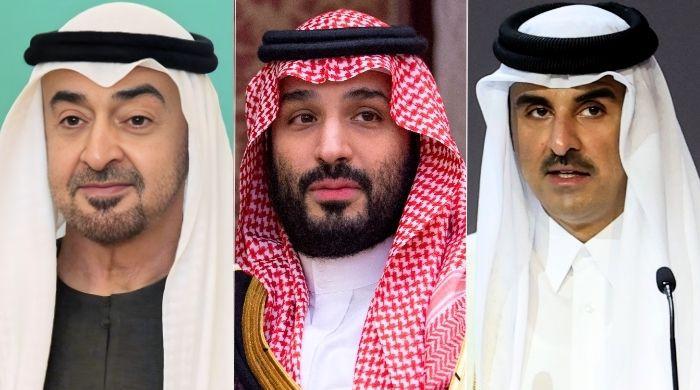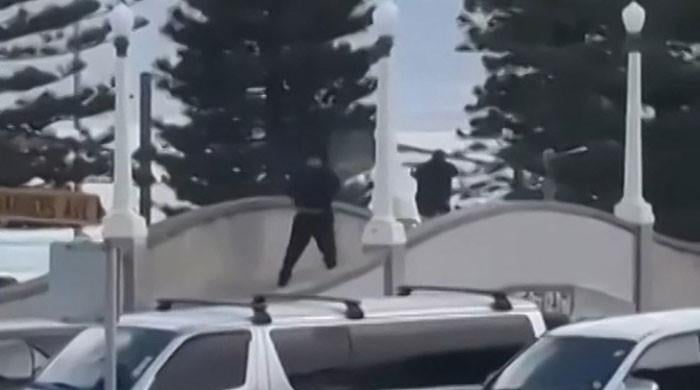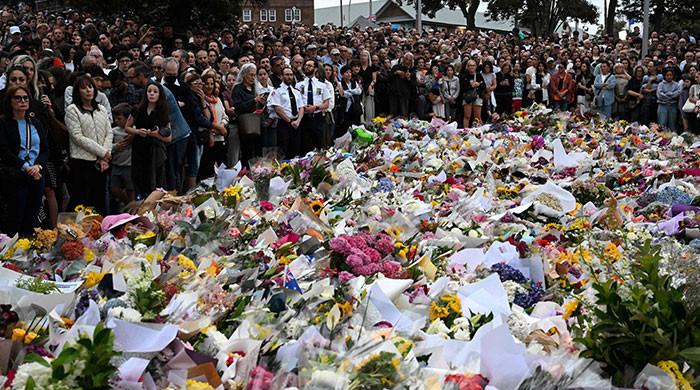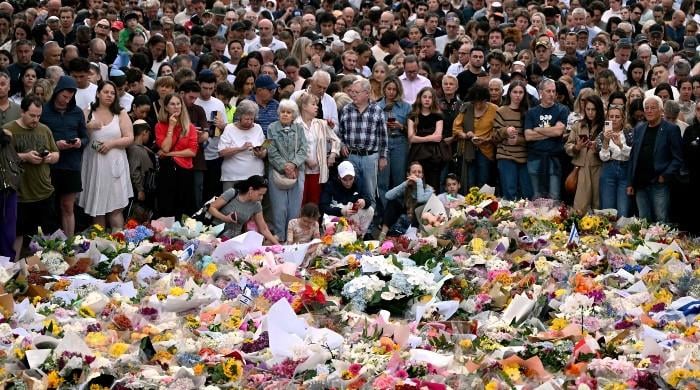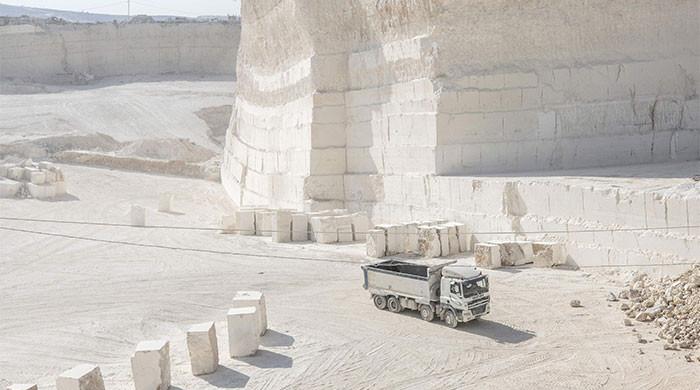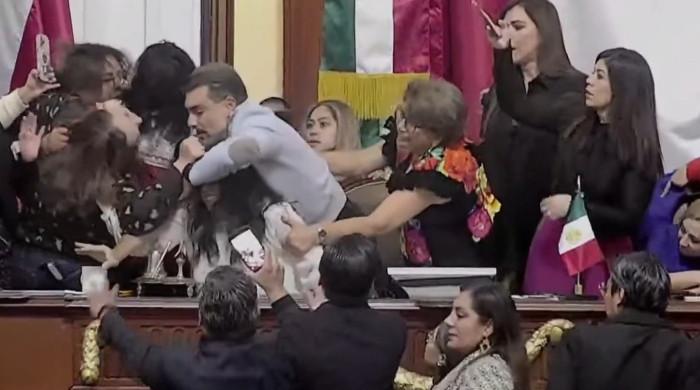Faisal Akram’s brother raises questions after Texas Synagogue killing
Gulbar asks for full-fledged probe into incident; questions why his brother was allowed to enter US
January 19, 2022
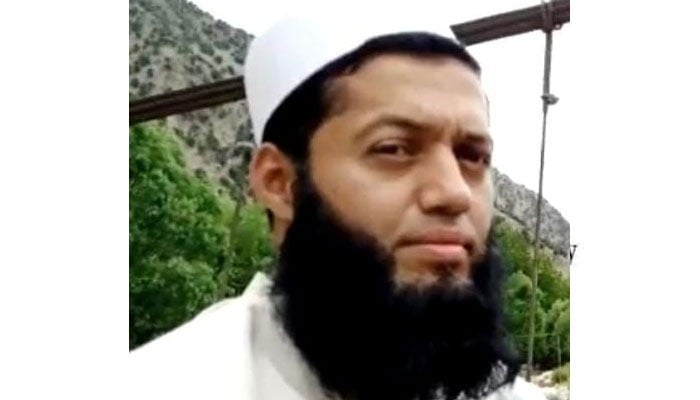
- Elder brother of Malik Faisal Akram condemns actions of his brother.
- Gulbar explains that he tried his best to persuade his brother to end hostage-taking
- He calls for full-fledged investigation into the incident and questions authorities why his brother was allowed to enter US.
BLACKBURN: The elder brother of Malik Faisal Akram — who took four people hostage at a Synagogue in the US before being shot dead — has condemned the actions of his brother, while demanding answers about how he was allowed to travel to the US.
In an exclusive interview with Geo News, Gulbar Akram explained that he tried his best to persuade his brother to end the hostage-taking episode and put an end to the tragedy but it became clear soon that Faisal had decided to end his life.
On Saturday, Faisal Akram, 44, was shot dead following an 11-hour stand-off at Congregation Beth Israel. All hostages were rescued without any physical harm.
Gulbar came to know about the harrowing incident when he received a call from his teenage nephew that his father was involved in a shootout with the police in the US.
Phone call to Faisal Akram
Gulbar says he immediately informed the police and, within minutes, he was involved in negotiating with his brother, issuing heartfelt pleas to him from his car as well as from the police station where a crisis centre had been established to liaise with the police services across the continents. The White House watched the operation live.
Gulbar called on his brother to put an end to the hostage-taking episode, asking him to think about his family and come home but his pleas were ignored. The trusted family sources said that Gulbar spoke to his brother for nearly half an hour, constantly reminding him of his family.
Gulbar said in his statement: “We are deeply saddened by the events of the past few days. We don’t want to make this about us. We think about what the victims went through. There were people who were fearful for their lives.
“We feel a great deal of pain for those who went through this. We hope nothing like this happens again in the future. As a family, it has been traumatic and devastating as another one of our brothers, 42, had passed away barely four months ago."
“For us to see our mother crying and my father visiting the grave each day [is traumatising]. They are crushed," he said.
“Our brother has gone but the victims didn’t choose to be in this situation and we can only feel for them. We are not aware that he had left the country. It had come as a complete shock to us.”
The statement from Gulbar said that he knew something terrible had happened when he took the call from his nephew. When Gulbar asked Faisal what he was doing in the US, he replied: “I am in America and I am in a synagogue. I have four beautiful Jewish people with me.”
At that point, Gulbar started recording the conversation, mindful that this could be the last time he could hear his brother.
During the phone call, Faisal told Gulbar he had taken hostages to highlight the continuing imprisonment of Pakistani national Dr Aafia Siddiqui. “I wanted the authorities to bring out Aafia Siddiqui,” Faisal told Gulbar.
In the conversation, Gulbar could be heard talking to his brother urging him to think of his family.
Gulbar said: “I tried to convince him and think about [his] kids. I told him ‘pack it in’…’pack it on’. His mind was made up. At no point did he say he would harm these people. I knew he had no bomb as he switches between Punjabi and English when he is lying. He had a handgun."
"You wanted to create awareness and you made your point," Gulbar said to Faisal.
"As the call went along, I feared he would not get out of this alive. All I could do was plead with him. I was in tears at this point and asked him to forgive me If I have ever done anything wrong.
“I just believe that they didn’t need to kill him. He had let the shots off. I heard the shots that finally killed him. I feel angry. They didn’t have to kill him. Once the hostages were out there is no reason to go in and kill him," he said.
Expressing his sorrow, he said: "We cannot come to terms with it. It just feels unreal. It happens to other people. It is a traumatic event for us all. I do not feel he intended to hurt anyone. From what we know, not one person needed medical treatment and he was there for 11 hours.”
Gulbar said Faisal Akram had never mentioned anything about Aafia Siddiqui till then and nobody could imagine he would take such an extreme step.
How did authorities allow my brother to enter US: Gulbar
Gulbar questioned why his brother was allowed to get on a plane without any stringent checks when he didn’t have COVID vaccination proofs and faced issues with law enforcement previously.
He said soon after arriving in the US, Faisal was able to buy a sim card and a gun without any issue and stayed at a homeless facility for two weeks before taking hostages at the Synagogue in another state.
Gulbar further said: “My brother was not a planner and never has been. A guy from Blackburn gets on a plane and doesn’t get questioned. He is also an anti-vaxxer. How did he get a visa? If my brother never had mental health issues, he would never have been involved in this. He should have been helped. He would never admit that he had mental health issues. It let him down over the years.”
Gulbar called for a full-fledged investigation into the incident that has ripped apart his family and the communities. He said: “We want to be part of the investigation and help as much as we can. We want nothing to be left out and nothing should be hidden from us. At the same time, we want to get our brother back so we can do the burial.
“We strongly feel this could have been prevented if he had not been allowed into the country.”
A family source said they have requested the US government to send Faisal Akram’s body to the family in Blackburn for burial in the local cemetery.




